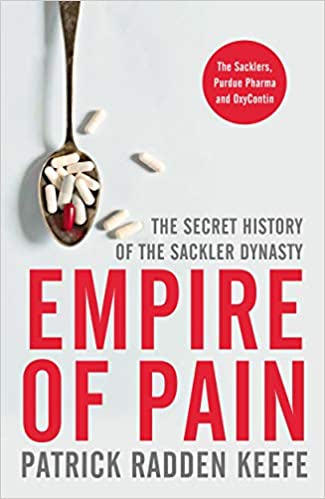Turning mountains into oceans, putting people on the moon

This is interesting:
A federal judge on Thursday evening unraveled a painstakingly negotiated settlement between Purdue Pharma and thousands of state, local and tribal governments who had sued the maker of the prescription painkiller OxyContin for its role in the ongoing opioid epidemic, saying that the plan was flawed in one critical area.
Judge Colleen McMahon of the U.S. District Court for the Southern District of New York said that the settlement, part of a restructuring plan for Purdue approved in September by a bankruptcy judge, should not be allowed because it released the company’s owners, members of the billionaire Sackler family, from liability in civil opioids cases.
The Sacklers did not file for personal bankruptcy protection, but they had made the condition an absolute requirement in exchange for contributing $4.5 billion to the settlement agreement.
The bankruptcy code, Judge McMahon said, does not explicitly permit a judge to grant such releases.
Whether this will hold up on appeal I have no idea. But morally, the deal negotiated was very bad — giving the Scakler family full immunity from civil suits while allowing them to keep most of their fortune is outrageous.
I need to give the book a longer writeup but I really strongly recommend Patrick Radden Keefe’s Empire of Pain, a remarkable look at the Sackler family and the seedy underbelly of big-money philanthropy. (Arthur Sackler was allowed to store his private collection at the Met for many years with the implicit understanding that it would be donated eventually; of course, someone failed to respect his authortah so he took it to the Smithsonian.) By starting a generation before Richard, Keefe really emphasizes how obscenely wealthy the Sacklers were before Oxycontin, and how ludicrously fraudulent the hard-sell of the powerful opioid as a drug with little risk of addiction was. It’s very hard to be optimistic but this presents a sliver of hope that they’ll have to pay a real price.


